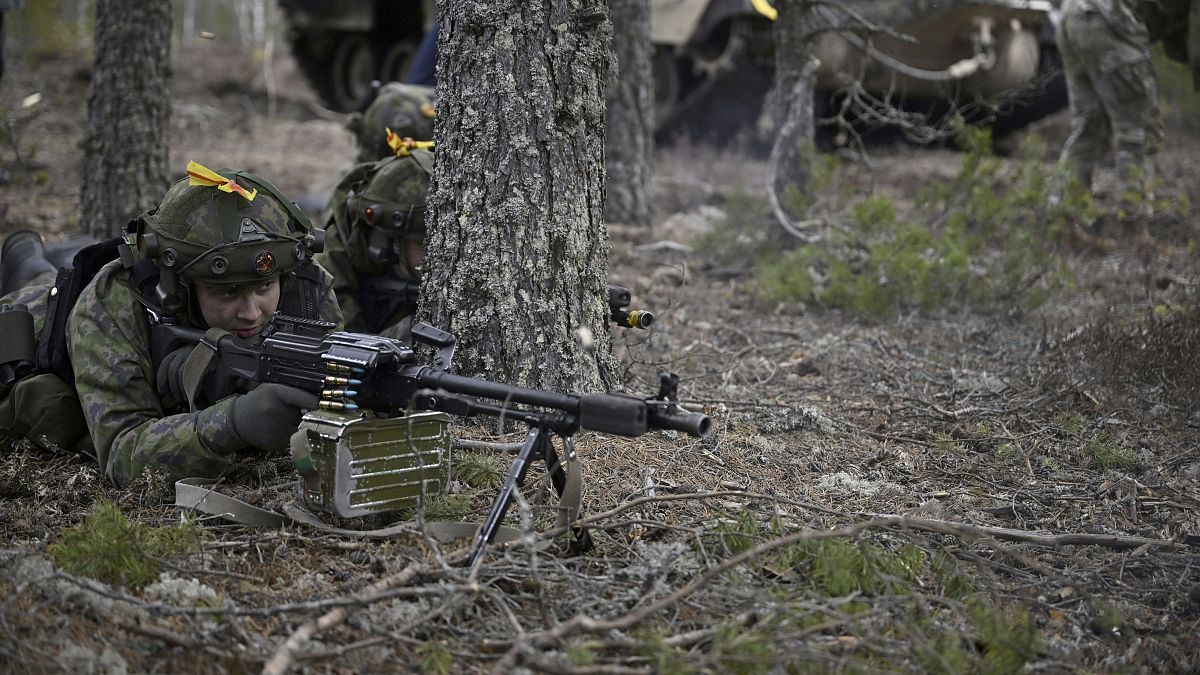Finnish commitment to defending their sovereignty from an imperialistic Russia has long been part of the Finnish psyche, and intrinsic to how the state is run. Since Putin’s revanchist mindset materialised in the full-scale invasion of Ukraine, Helsinki has moved to accelerate plans for defense.
Finland has accelerated its preparedness for all types of war – nuclear, full scale invasion, and is constantly responding to the numerous hybrid war attacks that Russia has stepped up since the full scale invasion of Ukraine.
Since 2022, Helsinki has been dealing with the tampering of undersea communication cables, disinformation and the presence of so-called Russian shadow oil fleets which illegally transport Russian oil contravening Western sanctions.
Preparedness, and being ready to respond to the threat that Russia poses is in the Finnish DNA.
For decades – in particular since the Soviet invasion of 1939 – Finns have been taking into account all manner of potential threats to their sovereignty and survival.
‘National model of comprehensive security’
Deterrence is the key principle – have a highly trained army, buy-in and participation from all elements of society – the private sector, NGO’s, civilians. In addition, there is compulsory conscription for all males for a period of nine months to around eighteen months depending on the role.
This so-called ‘national model of comprehensive security’ which engages the whole of society, leads to a national ‘will to defend’ the state, say state officials. Moreover, it is less likely that a foreign country will invade if the state is so heavily bulwarked from attack.
Mikko Hirvi, Deputy Commander of the Finnish Coast guard says the phenomenon of the “shadow fleet” has arisen since the Russian invasion, as has the increase in hybrid war.
“The Finnish Border Guard has always been a readiness organization which has built its capabilities to operate in a situation like today, but of course is also true that the phenomenon of the shadow fleet, GPS disturbance is something we have only seen over the last years.”
“We have seen cable cuts, cable breakdown points, which are under criminal investigation.”
A 1380 km long border with Russia
Finnish government officials describe how in the moments after Russia’s full scale invasion of Ukraine a ‘great mental change’ occurred in Helsinki and neighbouring Stockholm.
In addition to military strength, Finland has built several thousand civil defense shelters to accommodate all 600,000 denizens of Helsinki – with many more around the country.
These are underground shelters designed to protect against nuclear war, complete with toilet facilities, beds, water basins. At all times Finns are required to have a ‘grab box’ of supplies with perishable foods, bottled water, gasoline and other supplies in case of emergency and the country is ordered to shelter.
The Nordic country shares a 1380km border with Russia – the largest border with Russia in all of the NATO states. It started accelerating cooperation with Sweden and the US and NATO in 2014 after the annexation of Crimea, and incursions into the East, as well as the Kremlin’s interference during the Maidan protests.
“During this time, we knew we had a re-evaluate the issue of NATO if things changed dramatically” says Mikael Antell Deputy Director General of Political Department, Ministry of Foreign Affairs.
And now, “we have war”, he says.
In response to the Kremlin’s widespread actions across Europe and the beyond, the EU in December announced special sanctions against 16 individuals and three entities responsible for “Russia’s destabilising actions abroad.”
They relate to “policies by the government of the Russian Federation, which undermine the fundamental values of the EU and its member states, their security,** stability,** independence and integrity,** as well as those of international organisations and third countries through hybrid activities of various kinds, including the use of coordinated information manipulation and interference.”
Read the full article here


